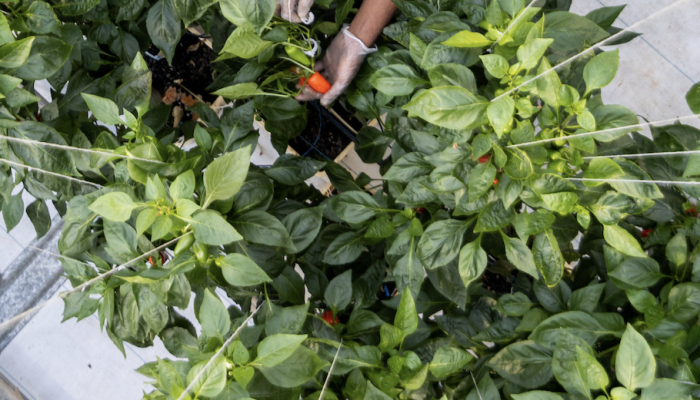Agricultural biotechnology holds great potential for addressing India’s challenges related to food and nutritional security for the 1.4 billion population, environmental sustainability, and adverse impacts of climate change on the country’s agri-food systems. Striking a balance between technological innovation and responsible deployment is crucial for realising the full potential of agri biotechnology.
Agricultural biotechnology’s essence lies in applying scientific and technological principles to enhance and modify agricultural processes, crops, and livestock.
Gene editing is a novel technique being used for crop improvement and various gene-edited plants have also been approved for commercial cultivation worldwide. In India, genetically modified bt-cotton has been in cultivation since 2002 which has transformed the cotton cultivation in the country by increasing the production multi-fold. Two more GM crops; bt-brinjal and GM mustard are ready to hit the farmers’ fields but stuck in the legal and regulatory battles.
You may also like to read: Findings from Murdoch’s Food Futures Institute reveal potential for peanut crop improvement
Research efforts are underway in both the public and private sectors and the Government of India has taken policy initiatives regarding the use of these technologies. Translating these research initiatives into products also requires enabling policies and understanding among key stakeholders viz. scientists, policymakers, industry and farmers.
Before the adoption of genetically modified cotton, India’s cotton production was 14 million bales in 2000. With the adoption of bt-cotton in 2002, the country’s cotton production tripled to 39.8 million bales in 2014 and India, a cotton importing country transformed into a leading exporter of cotton to the world. The adoption of biotechnology has been a revolution in India’s agriculture sector.
Agri biotech involves the manoeuvring of a plant organism’s genetic material to achieve desirable traits. This can be done through genetic engineering, where specific genes are inserted, modified, or removed to confer beneficial characteristics such as resistance to pests or diseases, tolerance to environmental stress, and improved nutritional content.
You may also like to read: ICRISAT pioneers ‘world’s first’ pigeonpea speed breeding protocol to bolster food security in drylands
Agri biotechnology plays a crucial role in developing crops with enhanced traits, including increased yield, improved nutritional quality, and better resistance to pests and diseases and adverse climatic conditions. This contributes to global food security and helps farmers produce more resilient and nutritious crops.
As climate change poses challenges to agriculture, biotechnology can contribute to developing crops that are more resilient to changing climatic conditions, such as drought-resistant or heat-tolerant varieties. Agricultural biotechnology offers alternatives to traditional chemical pest control methods. This includes the development of genetically modified crops that produce their own insecticides or are resistant to specific pests, reducing the need for external chemical interventions.
As discussions move forward, it is critical that the nation’s goals which include cutting back on massive imports of edible oil, saving a significant amount of foreign exchange, increasing productivity, and raising farmer incomes, be accorded the weight they deserve. Therefore, we hope that while considering the problem from a broad perspective, the cultural, social, and nutritional significance of mustard for India will be acknowledged.





